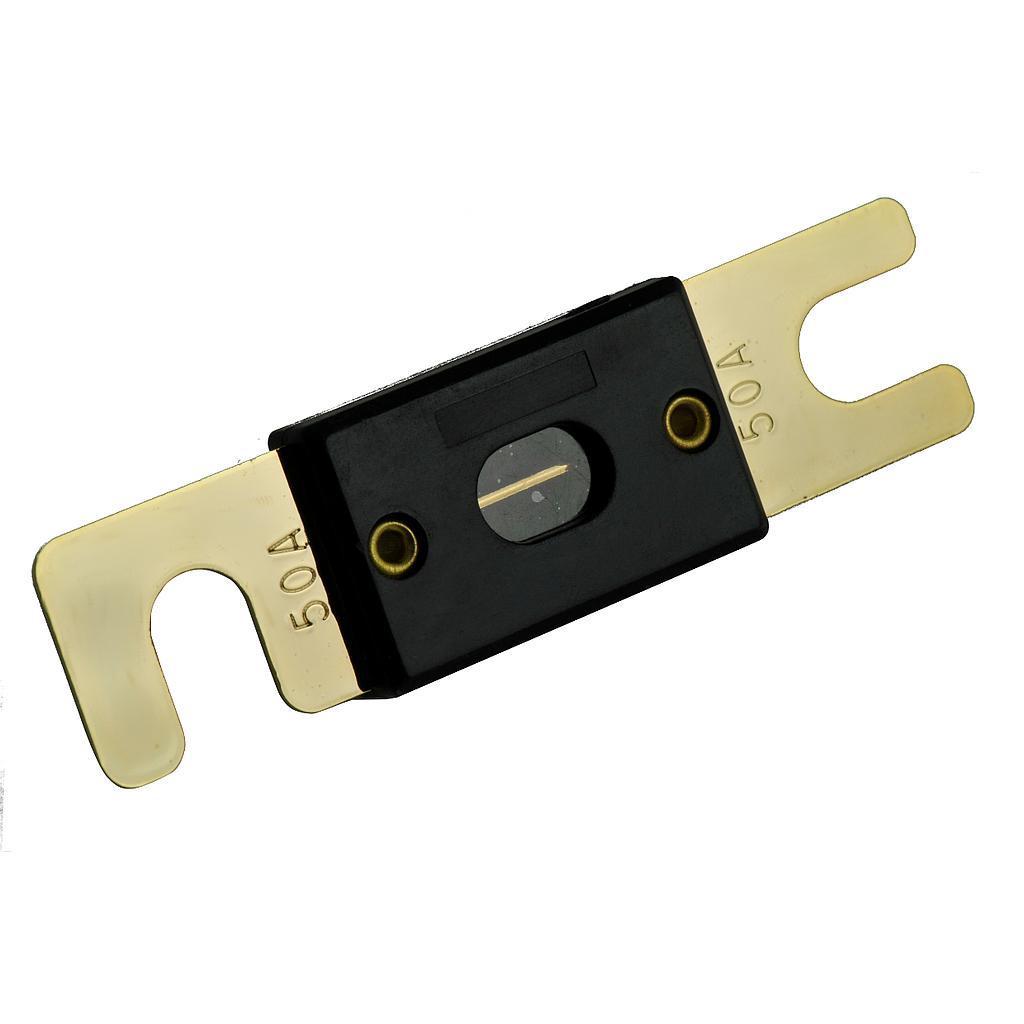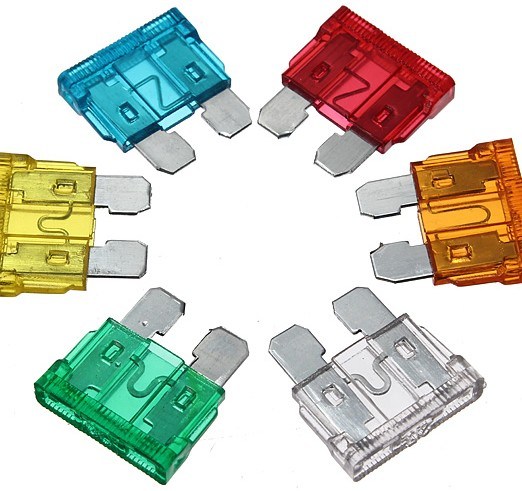Protecting Against Overcurrent
Direct current fuses play a critical role in safeguarding home safety by preventing electrical fires and the destruction of equipment by overcurrent. They can be used in an ordinary residence in various ways.
DC Fuse
A DC fuse is a device that can disconnect electrical current in a home appliance or circuit where the direct current is higher than it should be, which can lead to equipment damage and home fires. These types of fuses are applied when implementing solar panels, electric car chargers, and other home appliances that generate direct current as a part of their functioning principle.
Selection and Installation
When selecting a direct current fuse for use in a residence, it is essential to consider the current which the appliance should produce as a maximum. It will be necessary to consider the requirements of the application it will be connected to, as solar panels will require a different approach to fusing than an electric car charger to protect them. In the case of installation, it will be required to ensure that an electrician is certified, as only a worker with this credential will be able to ensure that the fuse has been installed properly and can function safely.
Real Example
The function of a direct current fuse is illustrated by a 2022 study where homes with solar power systems were asked to install fuses in them. No fires of solar units caused by overcurrent were recorded.

Operation and Maintenance
The current in homes should not be measured by DC fuses too frequently, as they may fail even without an excessive current level due to issues other than the current level. They should be checked by an electrician occasionally, and used or worn out ones should be replaced with new. In doing so, the function of the home fuse system will be safer, and the possibility of home electric faults developing will be minimized. The tenant will be able to use equipment connected to the house safely.
Mitigating Fire Risks
Direct current circuits and DC fuses have become irreplaceable in decreasing fire risks n residential areas with the proliferation of electronic devices that use DC power to operate.
Summary of Fuses Use and Their Fire Safety
Fire safety with the use of DC fuses can be achieved only if the mechanism of their operation is clearly understood. DC fuses are balanced in a way that they interrupt the current when it becomes strong enough to overload the circuit or cause significant overheating to the devices connected to it, thus preventing fires. The home solar panel’s DC fuse will probably collapse if the input current increases due to the exceptional number of sunlight hours on the panels.
Example of Fire Risk Reduction
A specific example that one can see in a real-world location is a resident’s EV charging system. These systems tend yo be the most vulnerable to overcurrent, as driving habits influence the rate of charging and external temperature. The DC fuse safety with those electrical devicea seemed to be achieved merely by choosing the correct one. In 2023, a study reported that installing DC fuses on the EV charger that meets the device’s requirements cans decrease fire risks by 40%.
Correct Installation
It must be stressed that using DC fuses requires the whole set of fuses to be installed correctly, accompanying their amperage with an exact and proper value of fuse to be used. If the installation is done improperly, the DC fuses can now work as intended, tripping either too early or, more dangerously, not at all.
Extra Fire Safety Solutions With DC Fuses
Some sceintific progress has allowed the use of fuses with circuits that protect themselves from overcurrent breakage and extra-short thermal properties, expanding the ameprage asfety margins. A next step is taken with the implementaton of the smart fuses. They can report to a homeowner, give real time overviea of one’s electrical system, and even predict faults that may cause a fire in the future.
Extending Appliance Lifespans
The use of DC fuses in home electrical systems contributes not only to the prevention of electric shock but also to the significant extension of home appliances’ lifespan. Its role in the process of appliance longevity is of a crucial nature since its function is to ensure that the power supply is cut off if the current of the appliance becomes higher than it can withstand.
The Role of DC Fuses in the Prolongation of Appliance’s Life
A DC fuse is implemented for protecting home appliances, and more specifically, it is responsible for stopping underspecified current conditions that can lead to the appliance’s destruction. Modern refrigerators are good examples of electrical appliances that benefit significantly from the use of DC fuses. The same applies to the HVAC systems because these two types of equipment are sensitive to poorly specified current levels, which can cause them to catch electricity over current conditions.
Case Study that Demonstrates an Extended Lifespan
One of the studies that demonstrate the concept of how the use of DC fuse can prolong the lifespan of a home appliance was conducted on a case of a residential HVAC system. In the experiment, DC fuses were added to the control circuit of HVAC systems, which were used to control how much power the HVAC can receive. The data collected by the end of the study confirmed the hypothesis that the use of DC fuses cause the HVAC systems to last for 30% longer, due to the decrease of electrical wear and tear.

Recommendations for Installation
To make the fuse suitable for the protection of a specific home appliance and therefore its prolonged lifespan, one should select its appropriate type and rating according to the appliance’s current specifications. It is strictly forbidden to install a fuse of a lower rating, because it will cut off the power supply not at the necessary point, but later. A fuse of higher specifications should not be installed, or the power supply will be constantly cut off, even if the current conditions are likely to destroy the appliance. The installation is to be conducted only by professionals with a certificate.
Easy Diagnostic for Electrical Issues
With the installation of DC fuses, home electrical systems become easier to diagnose. Residents will be able to detect and solve the problem before there are any severer consequences.
Description of the Issue and the Way It Is Solved by DC Fuses
DC fuses trip or blow when an electrical fault occurs, regardless of whether it is overcurrent or a short circuit. This immediate response not only prevents damage but also makes the diagnosis easier: residents will check the corresponding DC fuse. When the lighting in a particular area of a house is suddenly lost, the person needs to make sure whether this issue was caused by overcurrent.
A Real-Life Example of Making Diagnostics Easier
Home entertainment systems are regularly exposed to power surges because of such natural factors as lightning. When this occurs, it is abrupt: rather than spending time, guessing what might be wrong with the device, homeowners merely need to check the DC fuse. A survey conducted in 2023 finds that 85% of homeowners in the United States solve their electrical problems faster thanks to the DC fuses on the devices.
A Step-by-Step Guide to Making Diagnostics Easier
When the DC fuse trips, the person should make sure to turn the power off first. They have to eliminate the affected fuse and carefully examine it. If the DC fuse is blown, the person will have to replace it with another one of the same type and rating. In the next step, the homeowner needs to turn the power back on and watch the appliance. If the new DC fuse blows again, the issue is more critical, and the person should, surely, try and solve it through a professional electrician.
Enhanced Solutions
In the modern world, DC fuses can be smart, and they can have such features as real-time monitoring and automatic notifications. Homeowners can use mobile apps to familiarize themselves with such aspects as what kind of an electrical route has caused the device to trip a fuse.
Enhancing Overall Electrical System Integrity
DC fuses are essential when it comes to ensuring the overall integrity of home electrical systems and enabling them to operate efficiently and safely over time periods. Correct ratings are necessary for the described fuses. It means that the fuse’s rating should protect the integrity of the overall system or wiring.
Such rating should not be either too high or too low to perform actual protective functions. If the rated value is too low, it would keep on tripping, and applications or fusing in the overall circuit would be unstable all the time. If the rating is too high, it would not protect the circuit, and the AC unit, similar to an air conditioner, described in this case, would have damaged wiring soon after installation. By maintaining the use of an appropriate DC fuse rating, it is possible to ensure that the air conditioner at home does not trip, and wiring and the unit itself avoid potential overcurrent damage.
There is evidence that integrity improvements are beneficial. The study of the overall impact of such devices on the safety in residential communities revealed that the integrity improvements for systems and wiring as witnessed in communities with up-to-date fusing prevented failure in various percentages of AC systems.
These homeowners experienced a 70% decrease in the high-end five-year percentage of electrical claims for issues with wiring, systems, and electrical outlets. To ensure the described improvements in the overall integrity of the system, it is possible to implement several steps. It is necessary to evaluate the load and potential surges for each circuit. Appropriately rated DC fuses should be selected and installed. It is also necessary to continuously check and test their integrity and quality to prevent potential tripping and problems in the overall system.. Advantages of modern DC fusing include better fault current and time characteristics. They both protect better and ensure that considerations are more stable. The increase in efficiency is related to better modern materials that are suitable for DC ratings and durable for rapid and unstable AC loadings.
